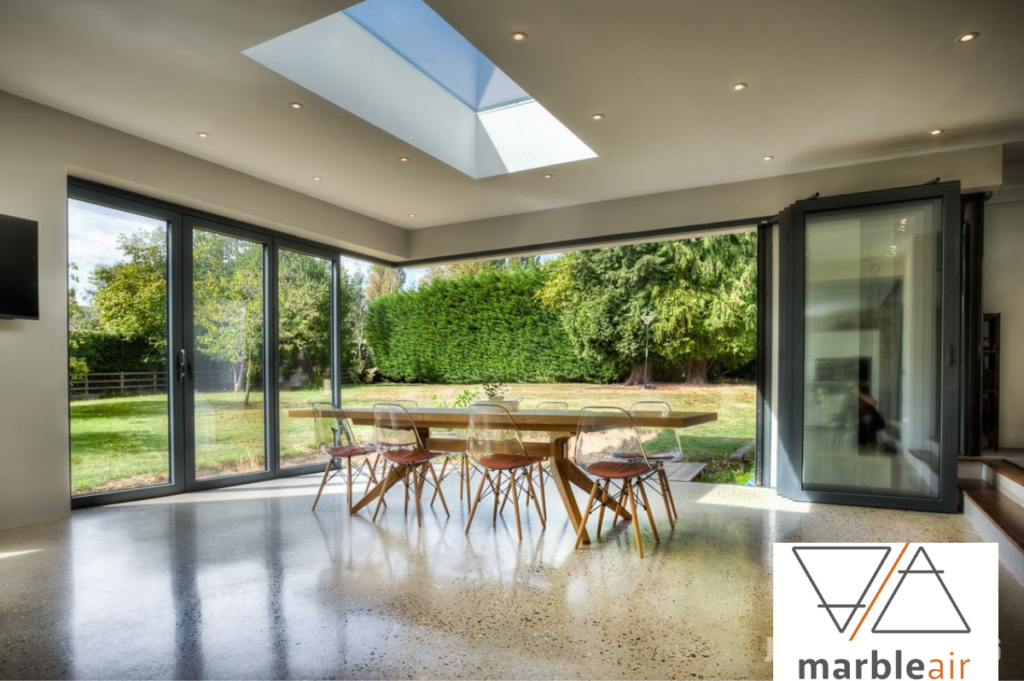How To Heat Your Home Sustainably & Reduce Your Financial Costs
Climate change commands that we adapt our homes to live more sustainably, while at the same time the financial and environmental costs of heating your home are set to soar when the price cap on energy bills is lifted in April 2022.
Here are the pros and cons of the best sustainable options for homeowners that will make your home more energy efficient and lower your energy bills.
Heat Your Home Sustainably & Reduce Your Costs
How to Heat Your Home Sustainably With Solar Panels
How do they work?
Solar panels convert energy from sunlight into electricity you can use in your home. Generating your own solar power gives you the opportunity to save on your electricity bill and your carbon dioxide emissions. However, due to the fluctuating available solar energy during the year, a solar water heating system won’t provide 100% of the hot water throughout the year. Therefore you will need an immersion heater or conventional boiler to top up the difference.
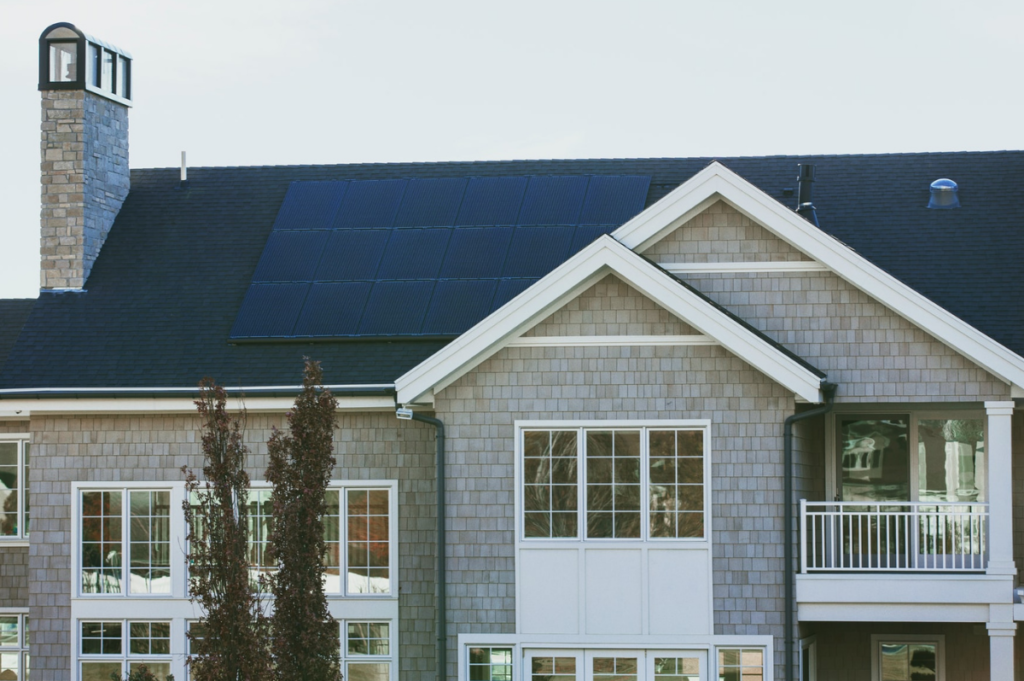
What are the main pros and cons?
Pros
- You will have hot water throughout the year. In the summer months, this system should provide approximately 90% of your hot water and reducing to about 25% in the winter months.
- Generating your own solar power gives you the opportunity to save on your your electricity bill as you generate your very own electricity.
- Solar PV panels generate electricity without emitting CO2. This environmentally friendly way of making energy produces no harmful emissions as a by-product.
- The good news is that over recent years, there have been many advances in photovoltaic technology “the average panel conversion efficiency has increased from 15% to well over 20%.”
- Solar panels are made to last: most commercial solar panels can be expected to last at least 20-25 years.
- Virtually no maintenance and there’s little or no cost after the initial payment.
- 24-hour power: added to a battery storage unit you’ll have access to free electricity even when the sun isn’t shining. You’ll also be less vulnerable to blackouts and power cuts.
- “If the panels are the new technology and are aesthetically acceptable” Solar panels can increase the value of your home ( NAEA Propertymark, the National Association of Estate Agents).
- You may be eligible to get payments for the heat you generate from a solar heating system through the Government’s Renewable Heating Initiative.
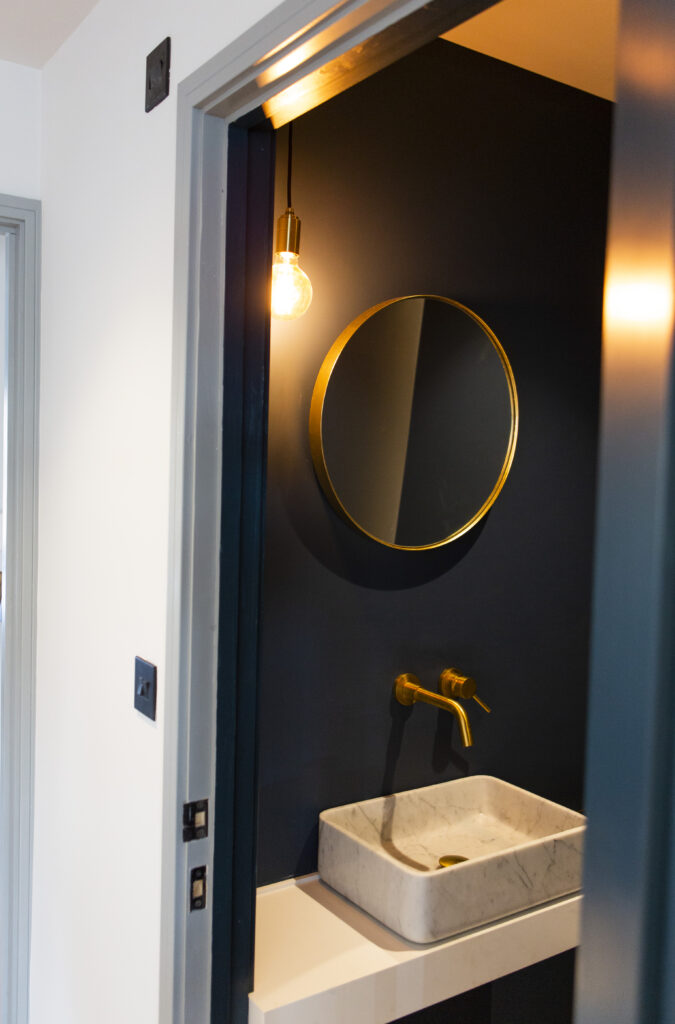
Cons
- One thing to say first is that it’s a costly initial investment, but it has the potential for a very good return on investment. The average cost of installing a solar heating system is between £3000 to £5000. Exactly how big your ROI depends on the following: how much sunlight your roof gets where you live, how much electricity you use now, and how much you’re paying for your electricity now.
- Not all solar panels are created equally! The newer and more efficient panels will tend to cost more. This should be at the top of things to check before taking the plunge and buying expensive panels.
- To maximise what your solar panels can make, you will need a predominantly South-facing roof or somewhere between East to West but not North facing.
- Location also matters because different parts of the country get different amounts of daylight, the benefits of solar power will depend on where you live.
- If you own a home in a conservation area, national park or your home is a listed building you may have to apply for planning permission. For your best chance of success visit The Energy Savings Trust to discover how to get planning permission.
- In some instances, if you are tied into old technology this could well affect the value of your home in a negative way.
Learn more about how solar panels work.
Air Source Heat Pumps
How do they work?
A heat pump captures warmth from the outside air and converting it into heat inside and then pumped directly into your rooms via radiators or underfloor heating (see figure 1 below). The Panasonic heat pump is a good example of an” all in one” system that provides domestic hot water, heating and cooling from one integrated compact unit.
Pros
- Air to water heat pumps are suitable for most types of homes and are the most common type of domestic heat pump.
- “They output as much as four times more energy as they consume, so they create a cost-saving against virtually all other heating fuels.” (Source GreenGen)
- You will save money on your energy bills. However, this does depend on how your heat pump is designed and how it is operated.
- They have a low carbon footprint as they capture up to 80% of the heat energy from the air (Source Panasonic).
- Temperature changes are felt quickly.
- They require only require one annual maintenance service.
- Heat pumps are versatile, although you will need a way of storing how water for when you need it. They can be used in conjunction with a hot water cylinder or heat battery.
- In general, the installation of an air source heat pump is usually considered permitted development and therefore does not require planning permission. However, if you live in a conservation area or listed building, you should contact your local council to check on requirements.
- A forced air system can also produce cool air, making it a full heating and Air Conditioning solution.
- The Panasonic heat pump claims to maintain their performance whatever the outside temperature, even down to -20 degrees.
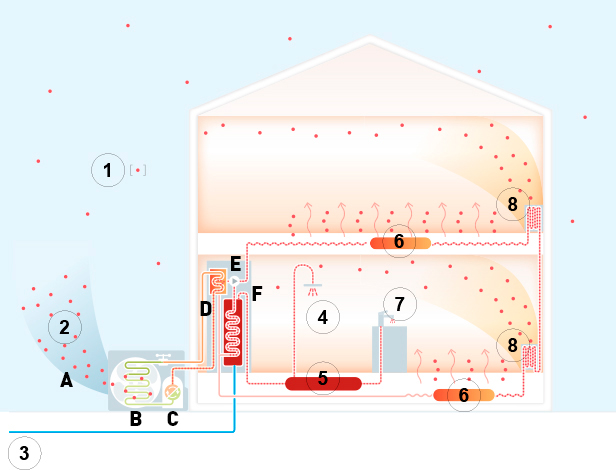
Cons
- Do you have have space outside your home where a unit can be fitted? The system needs to be located outside or connected to the house with pipes and it must have some space around it to allow a good air flow. Therefore, smaller properties may not have enough outside space.
- The cost of this system varies depending on your needs and the size of the heat pump and the size of your property. For example for your existing home you will need to factor in the cost of changing the way you distribute heat around your property. Approximate costs will be in the region of £7000 to £13,000.
- These systems can blow particles into rooms, causing a need for filters.
- Some systems can emit some noise created by the large fans.
- Due to the lower heat supply, you may need to combine with other heating systems, such as underfloor heating or radiators. (Source Air Source Heat Pumps – Pros and Cons (Updated 2021) | GreenMatch)
- Ideally you should have an airtight home (well insulated).
- An air source heat pump uses approximately 15% more electricity than a ground air source. (Source Better Planet).
Ground Source Heat Pumps
How do they work?
Ground Source Heat Pumps collects heat stored in the ground and converts it into usable energy to heat your radiators or underfloor heating. The ground collector consists of the ground loops (horizontal or boreholes) buried in the ground and connecting pipework.
What are the Pros and Cons?
Pros
- The pumps that power these heating systems are inexpensive to operate, making these systems overall quite affordable.
- The running costs will vary depending on how your heat pump is designed and how it is operated. Plus, whether you will need to replace your existing system. Overall, you will an annual savings on your energy costs after installation.
- These systems have a life expectancy of around 20 years, while the life expectancy of an air source heat pump is 15 years.
- Pulling heat from the ground is a more efficient system than an air source because the ground is warmer in winter than the air in winter when most heating is required.
- Low environmental impact that minimises emissions.
- In general, the installation of a ground source heat pump does not require planning permission. However, if you live in a conservation area or listed building, you should contact your local council to check on requirements.
Cons
- On the downside, while maintenance is relatively cheap, the initial cost of installing this system can be high, although it will last longer than an air source heat pump and is usually a better investment.
- A geothermal system is best installed when carrying out major renovations or a new build as pipes need to be laid.
- You will need land near your home for loops or boreholes. They can only be built into some sites with a decent amount of space available , making them somewhat less versatile than some alternatives. However, if space is limited outside your home, it will be a better option to drill boreholes although at the same time this is a more expensive method of gathering heat as a specialist ground survey is needed.
- Since electricity is needed to run the heat pump, if you aren’t using solar energy, it’s not a 100% carbon neutral system. (Source Best Home Improvements That Add Value (2021) | GreenMatch )
Biomass
How do they work?
Biomass is a renewable energy source which is generated from burning plants, wood or other organic matter. The energy creates warmth in a room or to power your central heating or hot water.
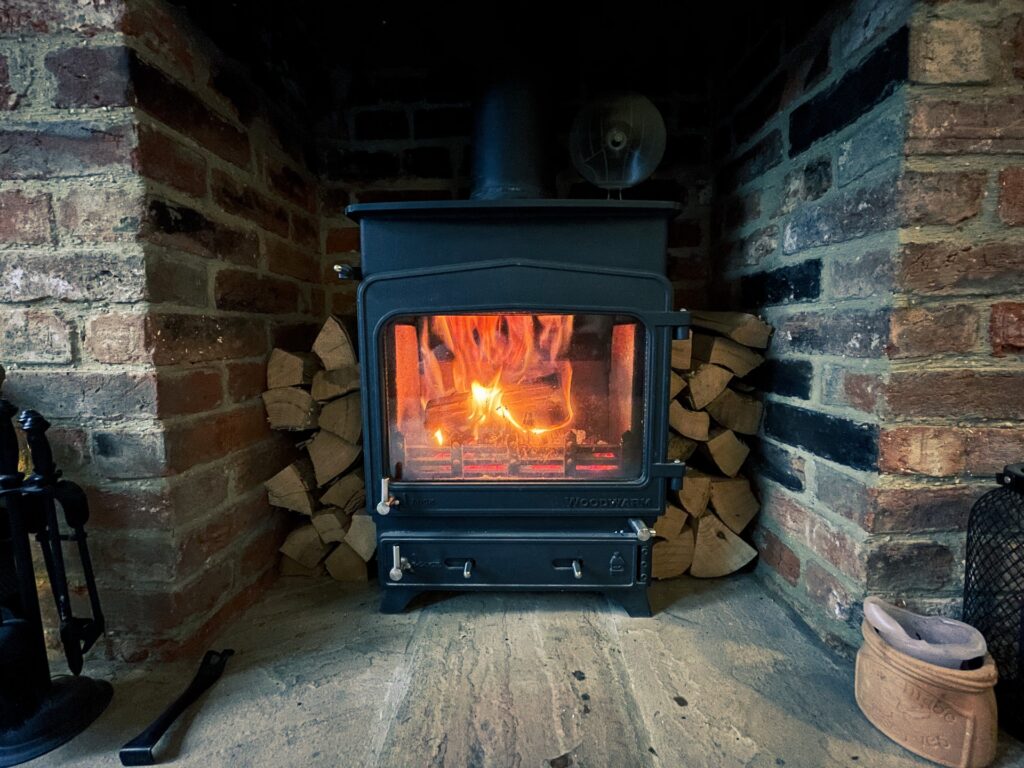
What are the Pros and Cons?
Pros
- A wood burning biomass is an affordable heating solution and could save you over £1000 per annum compared with an electrical heating system.
- A biomass boiler system could make you eligible for a renewable heating Initiative.
- Carbon emissions produced by a biomass system are substantially lower than than the emissions from fossil fuels and the system is run on sustainable sourced organic matter.
- There are several choices to consider when deciding on a wood -fuelled heating system. Things to decide: do you opt for a boiler or stove? Do you use pellets, chips or logs?
- It may be worth checking on your local fuel supplier before considering which wood fuelled heating system to choose.
- Do you have enough space? Wood boilers are larger than gas or oil boilers and you will need plenty of space to store the fuel.
- Do you have somewhere to install the flue? Furthermore, you will need to meet the regulations for wood burning appliances to ensure they are safe and legal.
- You may need planning permission. This isn’t always necessary, but it’s always worth checking.
Conclusion
For mote information visit the Energy Savings Trust website for impartial advice on renewables and efficiency.
We are passionate about incorporating renewable energy systems in our projects and we are more than happy to discuss suitable solutions for you. Contact us now.
